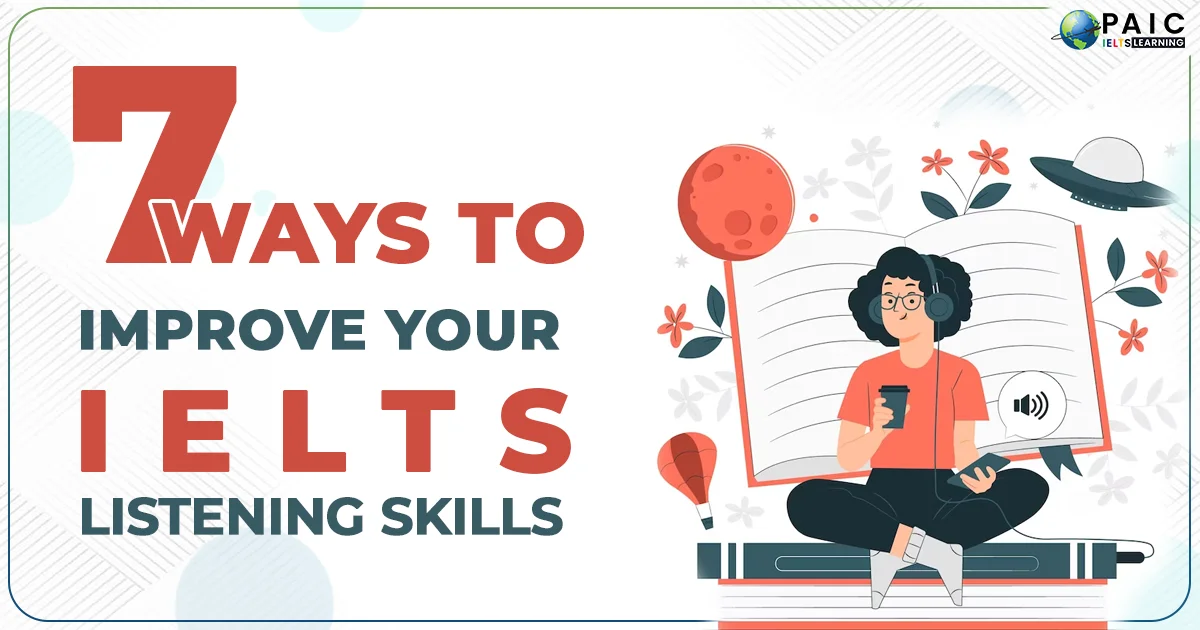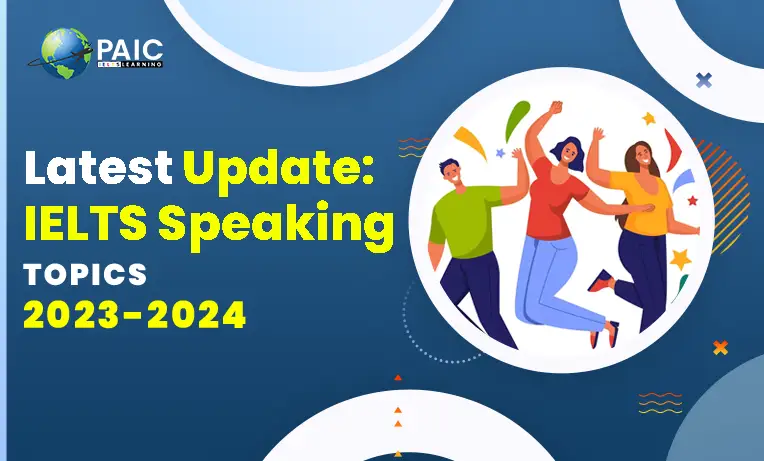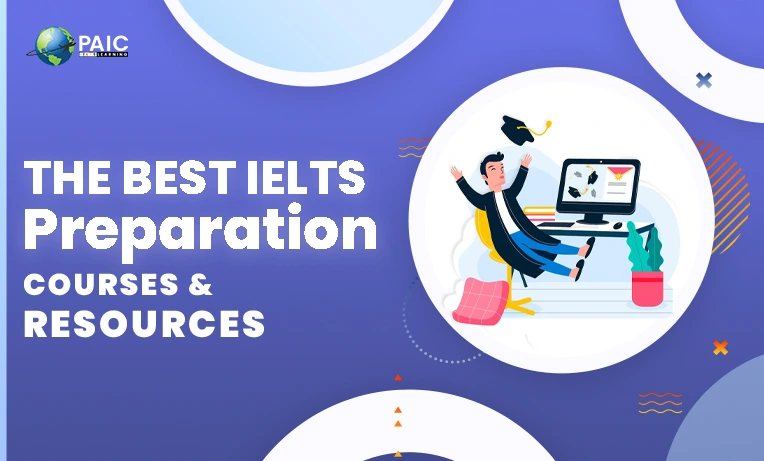Tags : ielts-learning-strategy strategy-for-ielts IELTS
If you plan to take the IELTS exam for visa applications or immigration purposes, proper guidance and essential tips can significantly enhance your chances of success. Here's a comprehensive master plan to help you prepare effectively.
Understand the IELTS Exam Format for Visa Applications:
Firstly, recognise that the IELTS exam typically consists of four main sections: Listening, Reading, Writing, and Speaking. Familiarising yourself with each section's duration, format, and scoring criteria is crucial.
For instance, the Listening section may involve listening to conversations and lectures, while the Reading section usually presents various text types. Knowing these details empowers you to allocate your preparation time efficiently. Moreover, research your visa application's specific band score requirements, as different countries and institutions often have varying criteria. By mastering the exam format and score prerequisites, you can embark on a well-informed and targeted
Schedule a Master Plan for IELTS Preparation:
Understanding the IELTS exam format for visa applications forms the bedrock upon which effective preparation is built. The compass guides your efforts, helping you navigate the seas of language proficiency and achieve your desired band score.
This comprehensive guide will delve into the essential strategies and insights necessary to comprehend the IELTS exam format for immigration and academic purposes. By the time you reach the shores of your destination, you will be equipped with the knowledge and tools needed to successfully navigate this challenging examination and unlock a world of possibilities.
Set a Target Band Score:
Determine your target band score based on visa or immigration requirements. This will guide your study efforts.
Create an IELTS Self-Study Schedule:
Develop a study plan that covers all four sections of the IELTS exam: Listening, Reading, Writing, and Speaking. Allocate sufficient time to each section based on your strengths and weaknesses.
Stick to the Plan:
Discipline is essential. Stick to your study schedule, and make adjustments as needed along the way.
Practice Sample Questions and Mock Tests:
Practice is crucial to improve your IELTS skills and familiarise yourself with the exam format. Consider the following. By consistently engaging with sample questions and full-length mock tests, you acquaint yourself with the IELTS format and develop a deeper understanding of your strengths and weaknesses.
In IELTS Writing, these sessions sharpen your essay preparation, enabling you to efficiently analyse prompts, brainstorm ideas, and structure coherent essays. In the Reading section, they help you decipher complex texts and decode questions. For the Speaking component, practice fosters fluency and enhances your ability to express thoughts articulately. Furthermore, in the Listening section, these tests attune your ears to various accents and dialects, an indispensable skill when deciphering audio recordings.
IELTS Writing Practice Tests:
Work on essay preparation, analyse sample essays, and practice writing within the time limits.
IELTS Reading Practice Tests:
Develop reading comprehension skills by tackling various reading materials and question types.
IELTS Speaking Practice Tests:
Practice speaking fluently on various topics, and record yourself to identify areas for improvement.
IELTS Listening Practice Tests:
Sharpen your listening skills by listening to various accents and practising note-taking.
Time Management for IELTS:
Time Management for IELTS is essential for success in this timed exam. It involves efficient time allocation in each section, from the Reading section's 60 minutes to effective essay planning in Writing and staying within time limits during Speaking. Effective time management ensures the completion of all sections and allows for essential review and editing, contributing to overall IELTS success.
Efficient time management is essential during the IELTS exam. Here are five key steps to help you manage your time effectively:
Analyse Questions:
Spend a few moments analysing each question before answering. Understand what is being asked.
Brainstorm Ideas:
In the Writing section, brainstorm ideas for your essay before you start writing. This will help you organise your thoughts.
Plan Your Essay:
Allocate time for planning your essay structure, including an introduction, body paragraphs, and a conclusion.
Stick to Time Limits:
The IELTS exam has strict time limits for each section. Practice answering questions within these time constraints to develop your pacing.
Review and Proofread: Review and proofread your answers for errors or improvements if time allows.
Strategies for Each Section of the IELTS Exam:
Strategies for Each Section of the IELTS Exam are essential tools that help candidates navigate the challenges of this comprehensive language assessment. In the Listening section, active listening and note-taking techniques enhance comprehension. For Reading, strategies like skimming and scanning expedite information retrieval.
In the Writing section, pre-planning essay structures and effective brainstorming are crucial. Lastly, in the Speaking section, fluency, coherence, and confidence-building strategies empower candidates to express themselves articulately and confidently, ultimately boosting their chances of achieving their desired band score.
Listening Section:
Focus on improving your listening comprehension by practising with various accents and note-taking techniques.
Reading Section:
Regularly enhance reading speed and comprehension by reading diverse materials.
Writing Section:
Develop a clear essay structure with an introduction, supporting paragraphs, and a conclusion. Practice organising your ideas effectively.
Speaking Section:
Practice speaking fluently on various topics and improve your pronunciation and vocabulary.
Test Day Preparation:
Practising relaxation techniques and maintaining mindfulness helps manage test anxiety. Familiarity with the exam format and section order is key, allowing you to transition seamlessly between tasks. Managing time wisely and maintaining focus on the current section is crucial during the exam.
Reviewing answers where possible, staying confident, and submitting answers promptly are vital aspects of a successful test day. Ultimately, test day preparation is about knowledge, poise, and mental readiness, enabling you to perform at your best and attain the desired band score.
- On the day of the exam, ensure you are well-prepared.
- Arrive at the test centre early to avoid unnecessary stress.
- Required Documents: Bring all required documents, including your ID and admission ticket.
- Stay Calm: Stay calm and focused during the exam. Don't let anxiety affect your performance.
- Manage Your Time: Monitor the clock to ensure you complete each section within the allocated time.
- Follow Instructions: Carefully read and follow the exam proctor's instructions.
Closure
In conclusion, bypassing the IELTS exam for immigration requires careful planning, effective strategies, and unwavering determination. Understanding the exam format and utilising available resources will help you confidently face the challenges. Success in the IELTS exam means achieving the required band score and gaining language skills vital for your new life abroad. Stay focused, positive, and committed, as mastering English will enrich your personal and professional journey. Embrace the process, strive for improvement, and let your IELTS journey be a testament to your determination. Best of luck on this transformative adventure.




